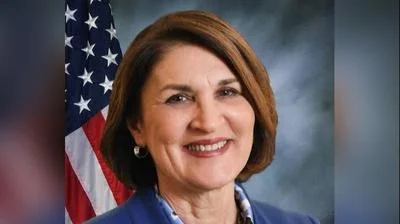Contributed photo
Contributed photo
Illinois is in a pension debt crisis, according to a report from Illinois' Commission on Government Forecasting and Accountability (CGFA), which said the state is facing what could amount to $130 billion in unfunded pension liability, with only an estimated 37.6 percent of all pensions being funded.
State Rep. Jeanne Ives (R-Wheaton) said pension reform should be Illinois’ highest priority, especially in regard to taxpayers.
“In my opinion, getting pension reform in the state of Illinois is the most important thing we need to do for the budget of Illinois,” Ives said. “That is because until we solve the pension problem for the long term, taxpayers have no guarantee that any new money they send to Springfield is going for additional services.”
Ives said taxpayers know their money is not going toward vital services and is instead funding the pensions of government workers -- pensions that most taxpayers cannot access or hope to get.
The $130 billion pension debt is the total amount from all five state retirement systems: the Teachers' Retirement System, the State Employees’ Retirement System, the State Universities Retirement System, General Assembly Retirement System and Judges’ Retirement System. Most Illinois taxpayers do not belong to any of those groups, but have to pay for the retirements of those employees.
Ives said this is unfair to taxpayers.
“To be honest with our taxpayers, we have to close off those systems before we send anymore new dollars to Springfield,” Ives said. “That requires comprehensive pension reform.”
The state’s unfunded liabilities started to explode around 2008 due to low returns on assets and low corporate bond yields, which drove down discount rates and resulted in substantial increases in the present value of liability streams. Illinois just wasn’t getting enough money back for its assets and bonds, resulting in the $130 billion pension liability.
Ives' suggestion for pension reform allows pensioners to take control of their retirement money, instead of relying solely on the state.
“I’ve written a bill that I believe is constitutional because new hires are moved into a 401(k)-style program,” she said. “It’s a flexible program that allows for the modernized workforce to have a flexibility that they want. If they want to move from job to job, they’re not stuck in a vested system that only allows them to get their contributions completely out (if they stay) for three decades.”
Ives said her proposal is more attuned to the modern work force and gives employees the freedom to invest their retirement money as they see fit. Her bill also would provide freedom for employees stuck at various tier levels to invest freely, instead of having their contributions go toward other tiers and retirees. Their money will be their money.
“If they accumulate enough, they can retire early,” Ives said. “If they need to change jobs, they can do that without being locked into a system that does not benefit them long term.”
Ives was so disheartened by the alleged misuse of taxpayers’ money that she wrote a piece in which she expounded what $400 million -- a fraction of the pension debt -- could do to serve the state. Services such as grants for students, early childhood education, and assistance and help for the disabled would all benefit if the state spends less than 1 percent of what it is spending on pensions.
“All that will probably be put on hold so we can spend a billion dollars more on pension,” Ives said.






 Alerts Sign-up
Alerts Sign-up